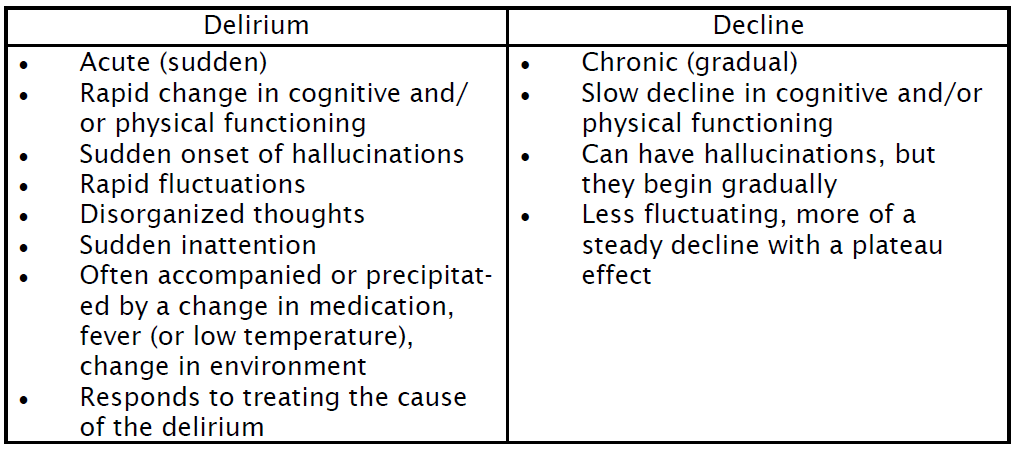Delirium: A disturbed state of mind or consciousness, especially an acute, transient condition associated with fever, intoxication, and certain other physical disorders, characterized by symptoms such as confusion, disorientation, agitation, and hallucination. – Oxford English Dictionary
For people living with a degenerative cognitive disorder, such as dementia, it can be difficult to differentiate whether a decline in their cognitive function stems from their disease or if it could be something more.
Delirium is a symptom, not a disease. It has an external cause that must be diagnosed and treated to alleviate it. Due to the varying rates of cognitive decline for each person living with a dementia diagnosis, delirium can be missed by care partners and healthcare providers alike. It can be assumed that the individual is experiencing a further decline in cognitive function.
Failure to diagnose and treat the cause of delirium can lead to serious and potentially long-term health consequences for the person experiencing it.
The most common causes of delirium in adults living with dementia include medication (side effects, interactions, or toxicity), infection, hospitalization, and dehydration.
Consider the following when you suspect delirium:

Please note that a person with a dementia diagnosis may or may not return to the previous level of functioning they were at before the delirium. Delirium is an acute medical condition that must be assessed and treated by a medical doctor. If you suspect that your person is experiencing delirium, please seek medical treatment for them.
For additional information on signs of delirium,